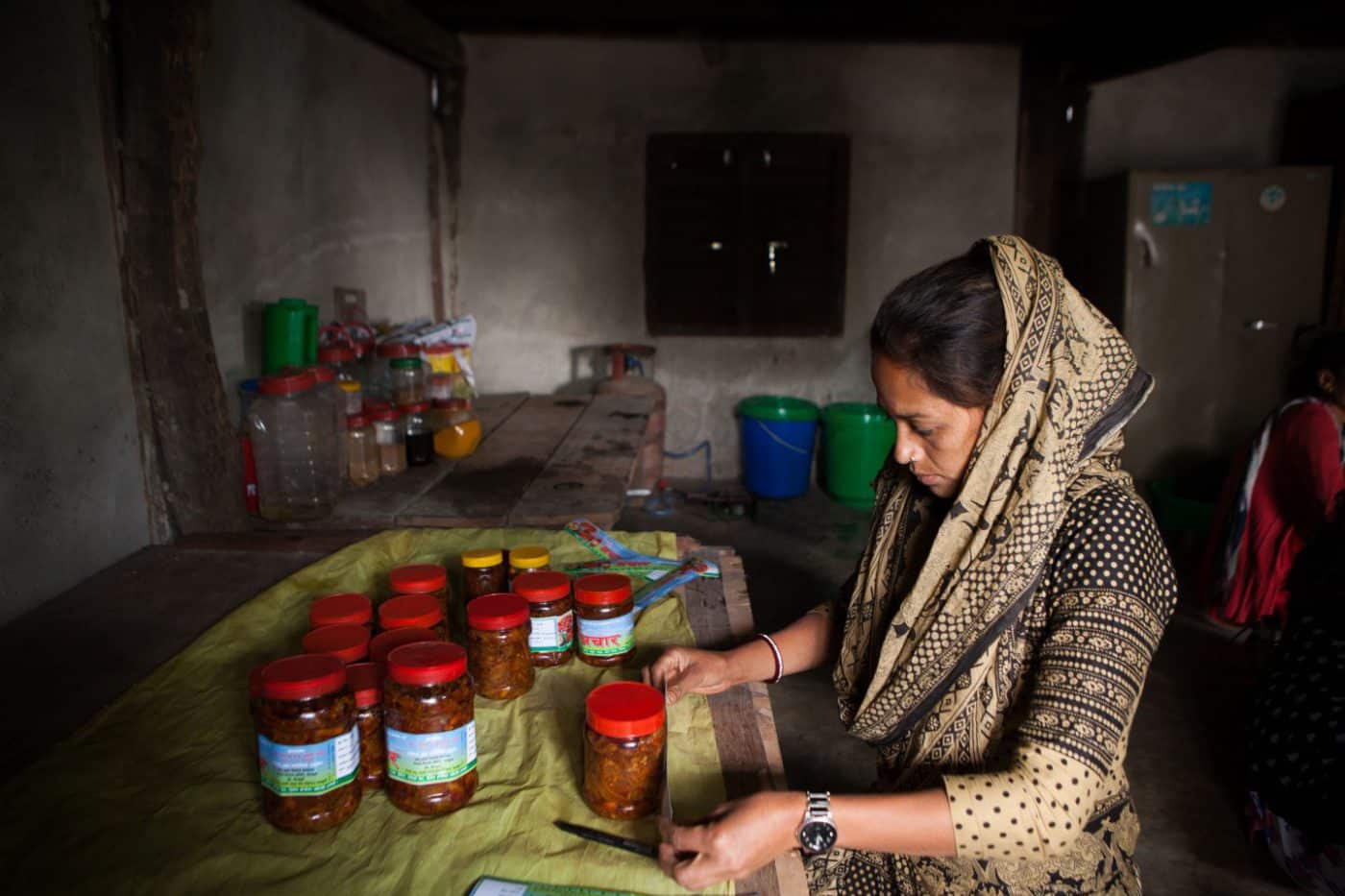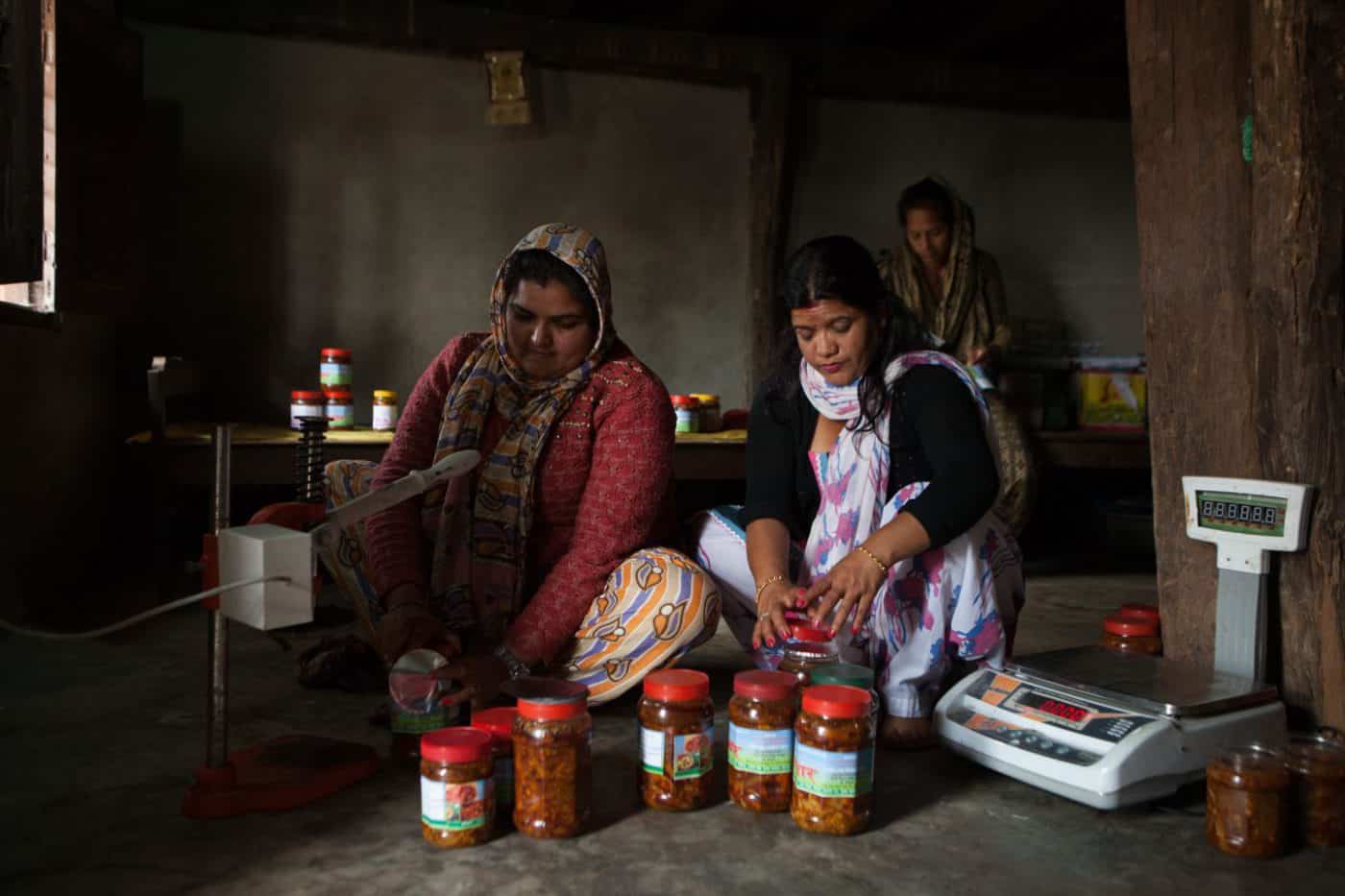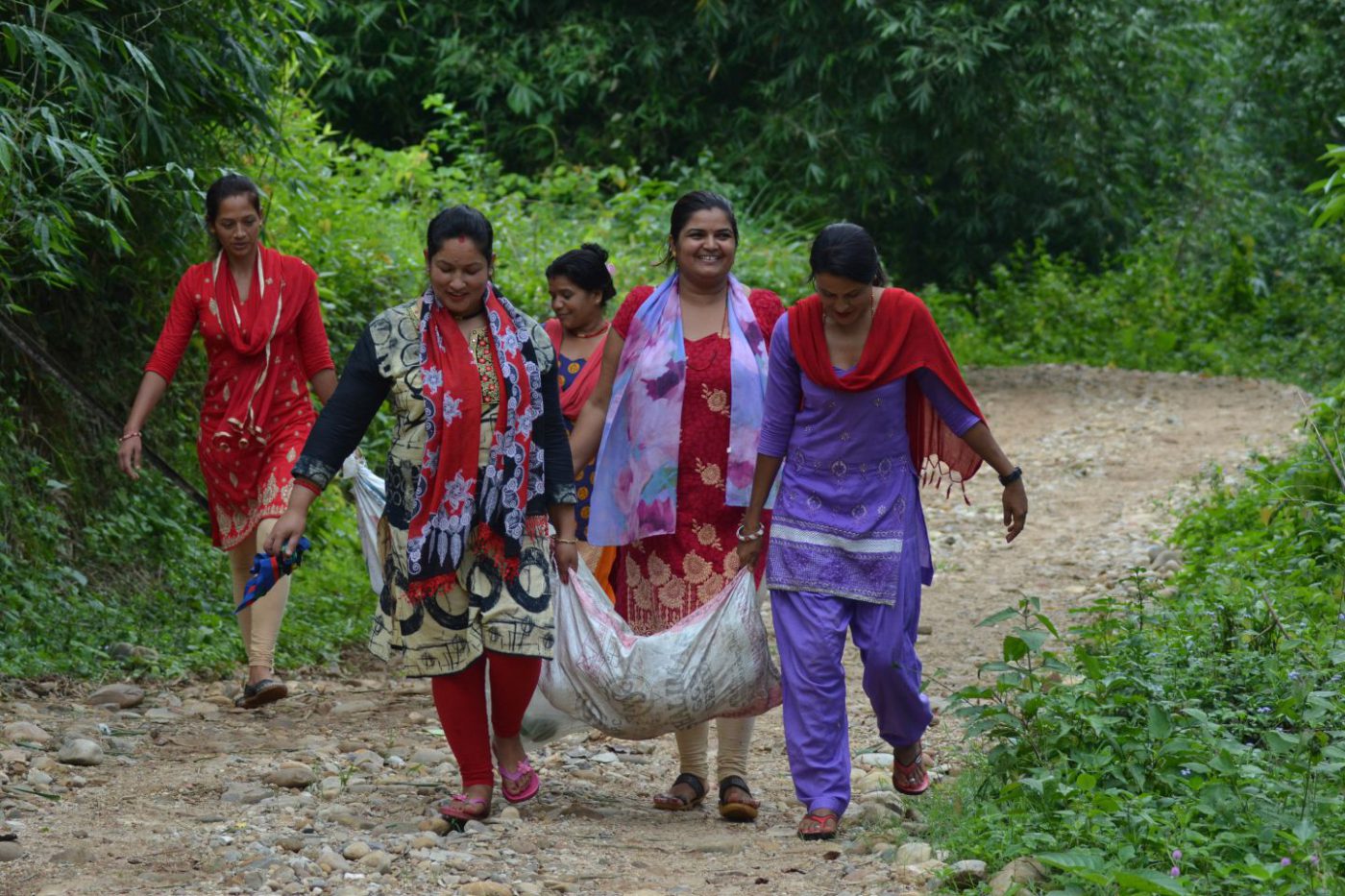By Tjarda Muller and Melissa Ruggles
On this International Women’s Day 2018, we celebrate women—and the need to further empower women—everywhere. Supporting women energy entrepreneurs is at the core of our Women’s Economic Empowerment Programme. Together with partners in six countries, we support over 4,000 women to become empowered entrepreneurs. Today, we share the story of one such empowered woman and the women’s group she leads in Nepal.
Where it all began
Sushila Dhakel is 31 years old and both a housewife and an entrepreneur in a rural Nepalese village called Dhakl Gaun. She also leads a women’s group called Namo Shivaya. The women comprising the group range in age from the low 30’s to mid-40’s, and have an average household size of 5 (including the women themselves).
About four years ago, Sushila and six other women friends who were also neighbours, gathered to start a pickle producing business. Pickles were a food that people produced only at home for personal use, until Sushila and the women of Namo Shivaya came along. Without any support from family, they persisted with developing their ideas and planning.

Women’s Economic Empowerment (WEE)
After the terrible earthquake that rocked the country, the women participated in ENERGIA and CRT-Nepal’s Women’s Economic Empowerment (WEE) programme, which facilitates trainings for women entrepreneurs. This training module primarily covered marketing of products. After the training, they started with pickle production. Within a few months of beginning though, they ran into a problem with the pickles—fungus. They decided to temporarily close their business to deal with the challenge.
In the meantime, Sushila and the fellow women entrepreneurs participated in more WEE trainings. These trainings primarily covered technical skills.
In the five-day training, we learned how to protect the produce from fungus and how to properly clean the pots. We also learned accounting and how to run a business, says Sushila.
After the trainings, the women reignited their pickle business and haven’t stopped since. Today, the WEE training expert visits Sushila and the Namo Shivaya group to offers tips and advice for their business. He helps motivate the women to continue.
ENERGIA’s Women’s Economic Empowerment programme supports women-led micro and small businesses, to build their capacities through trainings, through hand-held support and technical assistance. These include training, support and technical assistance in the field of: finance and distribution, business development, partnerships (with private sector and/or government institutions), marketing, fostering women’s leadership and influencing the national environment.
Pickle popularity
Today, there are five women in the group, working hard to produce pickles and sell them within their community, often at local markets. Their popularity is spreading within their own district, as well as in nearby districts. When Namo Shivaya didn’t show up at the market for a few days, the consumers went to find them at their shop to buy the delicious food.
To keep up with the high demand for their pickles, they decided to purchase electrical appliances to boost their production. For that, they needed some start-up capital. The ladies sought a loan from the Chhimek Bikash Bank, a microfinance institution, of NPR200,000 (approximately EUR 1,500). They didn’t have trouble getting a loan, since they took it as a group. Sushila remarks:
It was scary to take it, but we were also confident that we could do it. If we walk together, we can do it.
Sushila and the fellow entrepreneurs are steadily repaying the loan.

Scaling up to meet demand
With the loan, they have bought seal packing machines, a digital scale, blenders and tanks to improve storage and production of the pickles. They also purchased a solar dryer which they use to dry the vegetables. Before the dryer, they used to dry the pickles in the sun for an entire day, and now it can be done in minutes—sustainably!
Not only have Sushila and the ladies of Namo Shivaya introduced a new product to the local market, but they now have more money to buy household necessities and money for the kids’ education, as well as some extra to save for family emergencies. During the high season (May-July), Sushila and the other four women entrepreneurs divide the profit of NPR 90-92,000. per month (approx. EUR 700). During low season, the monthly overall profits average NPR 25,000 Rs. (approx. EUR 193).
Our lives have changed a lot. We used to be afraid to talk to people, but now we’re not. And we used to sit together in our homes and gossip, but now we talk business. We manage our household activities as well as a business. We also participate in programmes, such as governmental organisations who invite us to events to speak. This has built up our confidence! We have dreams of expanding our business to the national and international levels now.







